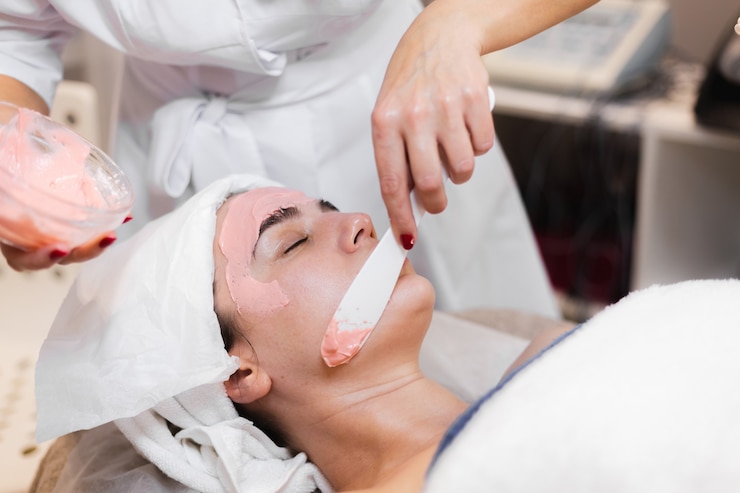Chemical peels are a popular choice for improving skin tone, texture, and clarity. They can address a variety of concerns, such as fine lines, acne scars, pigmentation, and dullness. However, selecting the right chemical peel for your skin type and needs is essential to achieving the best results. Let’s explore how to determine if a Chemical Peels in Dubai is right for you, and what factors you should consider.
1. Understanding Your Skin Concerns
Chemical peels are highly effective in treating specific skin issues. Before opting for a peel, it’s important to identify what you’d like to improve:
- Uneven Skin Tone: Chemical peels can reduce hyperpigmentation, dark spots, and discoloration.
- Acne and Acne Scars: Mild to medium peels can unclog pores, reduce inflammation, and improve the appearance of scars.
- Fine Lines and Wrinkles: Deeper peels can stimulate collagen production to minimize fine lines.
- Rough Texture: Peels promote cell turnover, creating smoother skin.
If any of these concerns resonate, you may benefit from a chemical peel tailored to address your specific issue.

2. Considering Skin Type
Different chemical peels work best for certain skin types:
- Oily and Acne-Prone Skin: Beta hydroxy acid (BHA), particularly salicylic acid, is oil-soluble and penetrates deeper into pores, making it ideal for acne-prone and oily skin.
- Dry and Sensitive Skin: Alpha hydroxy acids (AHAs), such as lactic and glycolic acid, are more suitable for dry and sensitive skin, as they offer gentle exfoliation.
- Combination Skin: Combination skin types can benefit from peels with a mix of AHAs and BHAs to address both oily and dry areas.
- Darker Skin Tones: Not all chemical peels are recommended for deeper skin tones due to the risk of pigmentation changes. Superficial peels with mild AHAs or BHAs are often safer, though a professional consultation is essential for the best guidance.
3. Assessing Your Skin Sensitivity
If you have sensitive skin, you may still be a candidate for a chemical peel, but it’s advisable to start with a milder peel or test a small area first. Sensitive skin may require a more gradual approach with lower concentrations to avoid irritation.
4. Depth and Intensity of Peels
There are three main types of chemical peels, and your selection should be based on your skin goals and tolerance for downtime:
- Superficial Peels: These are ideal for those new to chemical peels or with minimal skin concerns. They gently exfoliate and require little to no downtime.
- Medium Peels: Recommended for addressing more prominent issues like moderate wrinkles and pigmentation, medium peels go deeper and may involve some peeling and recovery time.
- Deep Peels: These are the most intense and are suitable for advanced skin concerns, such as deep wrinkles and scars. Deep peels typically have a longer recovery period.
5. Downtime and Recovery Considerations
The depth of the peel determines the amount of downtime required. Superficial peels usually need minimal downtime, while medium and deep peels may require several days or even weeks of recovery. If you have a busy lifestyle and limited availability for recovery, a lighter peel might be more suitable.
6. Health Conditions and Contraindications
Certain conditions may impact the suitability of a chemical peel:
- Pregnancy or Breastfeeding: Strong peels are generally discouraged due to potential absorption.
- Skin Disorders: Conditions like eczema, psoriasis, and rosacea may worsen with peels.
- Recent Sunburn or Tanning: Freshly tanned or sunburned skin is more sensitive, making it unsuitable for a peel.
Always disclose your medical history and any medications to your provider, as some ingredients may interact with the peel.
7. Professional Guidance for Optimal Results
A professional consultation with a licensed dermatologist or aesthetician can help ensure that the chosen chemical peel matches your skin type, goals, and expectations. They can guide you in understanding what to expect during treatment and aftercare.
Conclusion
Choosing a chemical peel depends on understanding your skin type, concerns, and lifestyle. By selecting the right type and intensity of peel, you can achieve smooth, radiant, and revitalized skin. Consulting a professional and considering your unique needs will ensure that a chemical peel is a safe and effective choice for you.





Comments